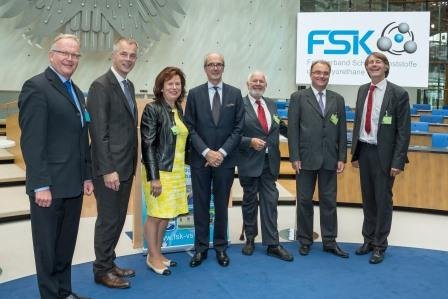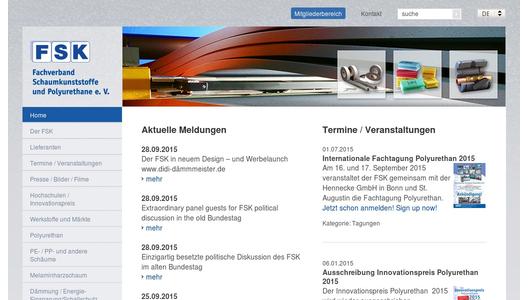Background for the discussion is the ever tighter and more extensive legislation on corporate environmental protection, occupational health and safety and consumer protection. For years provisions of European chemicals policies have been affecting in particular companies processing reactive plastics.
Moderated by Dirk Jepsen of Ökopol, Prof. Dr. Ernst von Weizsäcker addressed the conscience of the representatives of the chemical industry present by demanding more international resource efficiency and sustainability in all areas of the value chain. Prof. von Weizsäcker sees a need for action to internationally better adapt the standards for environmental legislation. Europe and Germany are role models, but could also do more in terms of resource efficiency.
Undersecretary (Ministerialrat) Dr. Dietmar Kopp from the Ministry for Economic Affairs and Energy stated that worthy environmental objectives are indeed welcomed, yet are not easy to grasp in manageable legal regulations. With the example of the chemicals policy he made it clear that the devil is often in the detail. Particularly in the implementation of European law it can occur that regulations and laws not only complement but also contradict each other in details. Politics endeavors to avoid duplication of rules and conflicting regulations. Especially an easy handling of the laws for the industry is a key matter of concern for the Ministry of Economics. Federal structures as in Germany and the interests of regions and federal states should not lose in importance with increasing globalization. Using environmental policies the NRW Environment Minister Johannes Remmel described how this is attempted in North Rhine-Westphalia, emphasizing the importance of environmentally friendly technologies for the business location North Rhine-Westphalia. As Member of the NRW Parliament and Member of the NRW Committee “Europe and One World” Ilka von Boeselager reported that also state politics do not disregard European and global spheres of activity. Ms. von Boeselager went on to say that in her experience there are most certainly examples of environmental cooperation successfully incorporating regional efforts in an international context.
During the discussion with FSK conference attendees the industry pointed out the difficulties in implementing the multitude of European laws - in particular the REACH Regulations. The question concerning the business location Germany was also raised, as there is a far more rigorous and wide-ranging environmental law here than in other European countries and worldwide. Lastly, the discussion which took place during a collaborative event of the FSK and the Hennecke GmbH, FSK Chairman Albrecht Manderscheid and FSK Managing Director Dr. Hans-W. Schloz thanked political guests.
File copy requested.


